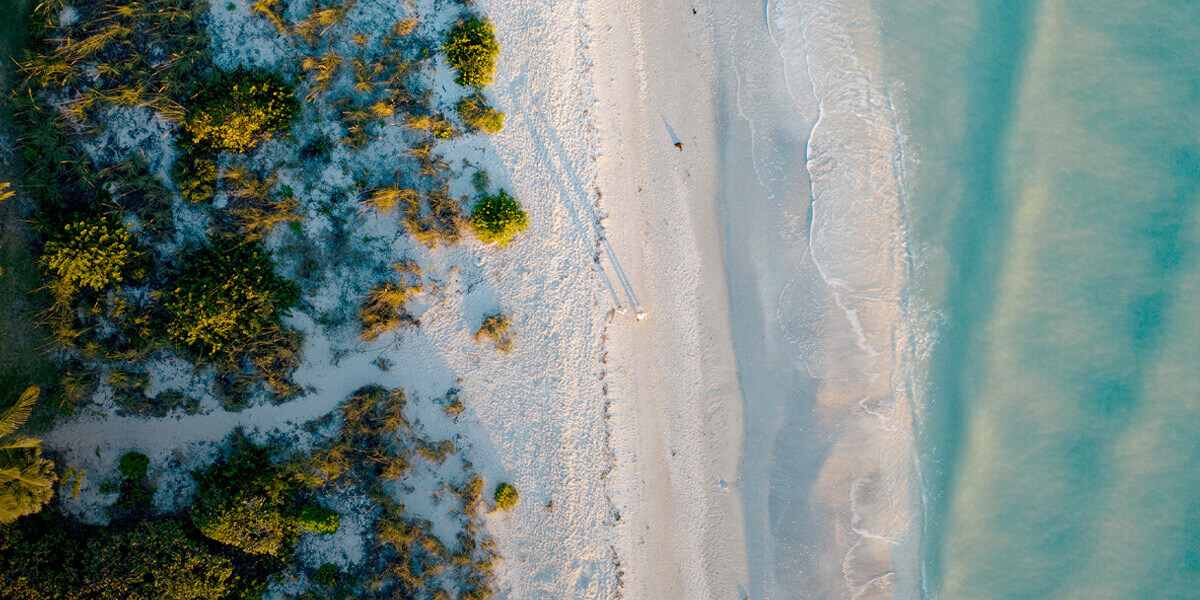
Surfrider Foundation’s Florida network is celebrating permanent protections for state parks and increased transparency and public engagement requirements as the State Park Preservation Act (HB209) was signed into law by Governor DeSantis on May 22, 2025.
The law provides long-term, strong protections for our treasured state parks against harmful development projects like resort-style lodging, golf courses, and pickleball courts. It also mandates increased transparency and opportunities for public engagement in parks' land management planning processes. These protections will safeguard our parks and the invaluable experiences and benefits they provide Floridians and our many state visitors.
Last summer, following the leak of Florida Department of Environmental Protection’s “Great Outdoor Initiative,” Surfrider’s Florida network mobilized alongside environmental partners and Floridians across the state to oppose reckless development plans for nine of our treasured state parks. The development plans included large-scale lodging with hundreds of rooms, golf courses, pickleball courts, and other harmful facility proposals. Among the parks intended for development: Jonathan Dickinson, Anastasia, Topsail, and Dr. Von Mizell-Eula Johnson State Parks – all invaluable coastal lands that provide many community and environmental benefits. These development plans threatened fragile ecosystems and habitats, undermined resilience efforts by eliminating natural buffers for sea level rise and flooding, jeopardized water quality by paving over natural filtration lands, and reduced recreational opportunities in increasingly rare wild spaces.
After the leak of the development proposal, the state provided less than a week’s notice for public meetings and a narrow window for public comment – the meeting for each park would be held on the same day at the same time. Surfrider Florida quickly called our network to action and joined with partners to strategize public awareness and maximize participation at the public meetings. Floridians made more than 250,000 calls and emails to state officials opposing the development plans and hundreds planned to attend the public meetings. Faced with public outcry and a groundswell of opposition across the state, Governor DeSantis announced that the development plans were withdrawn on August 28, 2024.
As we celebrated this hard-fought, grassroots victory alongside our partners and Floridians, we knew that these development plans, the lack of transparency, and the expedited approval process illuminated serious shortcomings in the protection of our state parks. To prevent future threats to our parks and their undeveloped lands, we had to strengthen Florida’s state law so we would not be fighting these same battles again in the future.
In the lead up to the 2025 Florida Legislative Session, state legislators stepped up to prioritize the protection of state parks. In particular, Senators Gayle Harrell and Jennifer Bradley and Representatives John Snyder and Peggy Gossett-Seidman championed the issue as the sponsors of legislation to protect state parks. While the original bills were an important first step toward a long-term solution, the initial language left too many gaps and potential loopholes that could be exploited for unwise and unwanted development. Surfrider Florida joined over 70 organizations to urge state legislators to tighten protections and update the bills to provide comprehensive, long-term safeguards for our state parks.
Throughout the 2025 session, we continued to advocate for the strongest protections for state parks while holding firm against any attempts to weaken the legislation. Surfrider advocates met with legislators – including the offices of bill sponsors Senator Harrell and Representative Gossett-Seidman – during Florida Healthy Beaches Day, Surfrider’s annual advocacy event in Tallahassee. In these meetings, advocates shared their personal experiences in our state parks as well as the myriad of environmental benefits these undeveloped lands provide our communities. Surfrider's Florida network engaged in countless actions as the bills progressed through committees and floor votes – supporting amendments that improved the bill and opposing amendments that stripped protections or left openings for reckless development proposals. Surfrider worked alongside dedicated partners, including Sierra Club Florida, Audubon Florida, 1000 Friends of Florida, Florida Springs Council, and many others, to maintain consistent pressure and advocacy.




In the final days of the regular session, the Florida Legislature unanimously passed the strongest version of the State Park Preservation Act. Surfrider’s Florida network continued engagement and outreach to Governor DeSantis, encouraging him to swiftly sign these protections into law. On May 22, the State Park Preservation Act became law with the explicit prohibition of reckless development projects in our state parks and requirements for increased transparency and public engagement in parks’ land planning and management processes. The new law protects over 815,000 acres in our state parks – including over 100 miles of sandy beaches – and will facilitate coastal resilience, water quality, habitat restoration and protection, and unique public recreational opportunities across the state.
From the rapid mobilization that saved nine state parks from development to the persistent advocacy that secured permanent protections for 175 parks across the state, the successful efforts to keep Florida’s state parks wild are a testament to grassroots engagement, sustained public pressure, and love for these invaluable lands.
